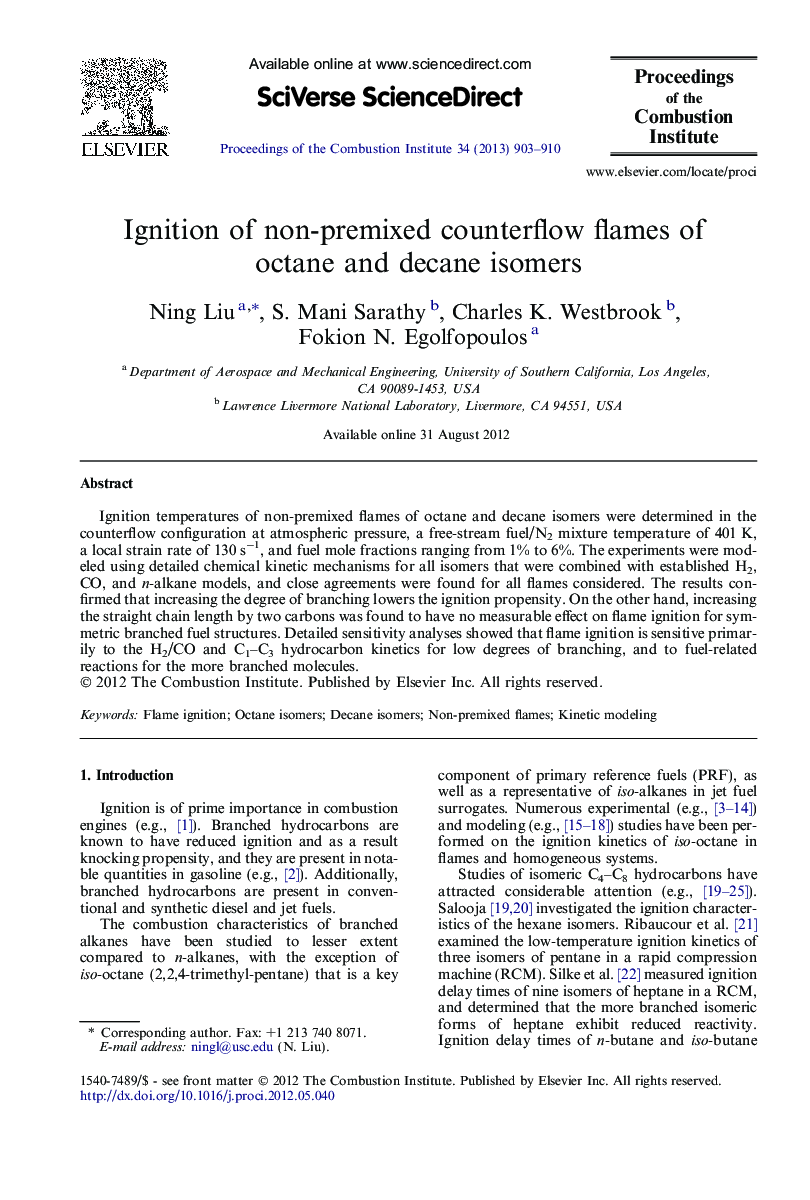| Article ID | Journal | Published Year | Pages | File Type |
|---|---|---|---|---|
| 241198 | Proceedings of the Combustion Institute | 2013 | 8 Pages |
Ignition temperatures of non-premixed flames of octane and decane isomers were determined in the counterflow configuration at atmospheric pressure, a free-stream fuel/N2 mixture temperature of 401 K, a local strain rate of 130 s−1, and fuel mole fractions ranging from 1% to 6%. The experiments were modeled using detailed chemical kinetic mechanisms for all isomers that were combined with established H2, CO, and n-alkane models, and close agreements were found for all flames considered. The results confirmed that increasing the degree of branching lowers the ignition propensity. On the other hand, increasing the straight chain length by two carbons was found to have no measurable effect on flame ignition for symmetric branched fuel structures. Detailed sensitivity analyses showed that flame ignition is sensitive primarily to the H2/CO and C1–C3 hydrocarbon kinetics for low degrees of branching, and to fuel-related reactions for the more branched molecules.
